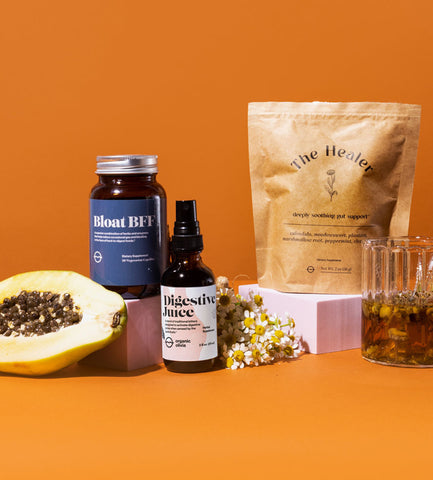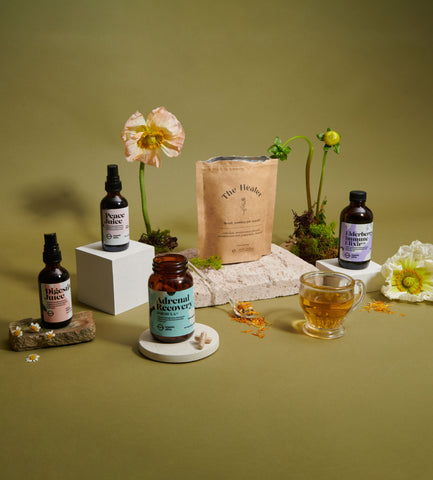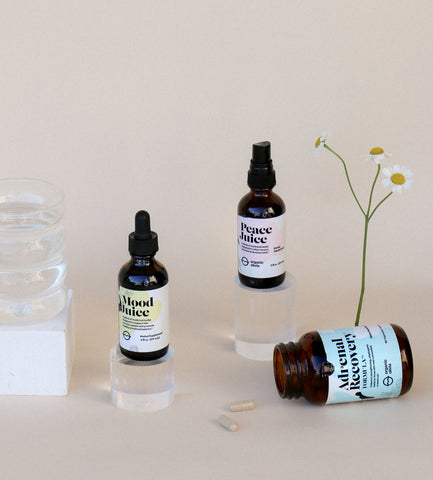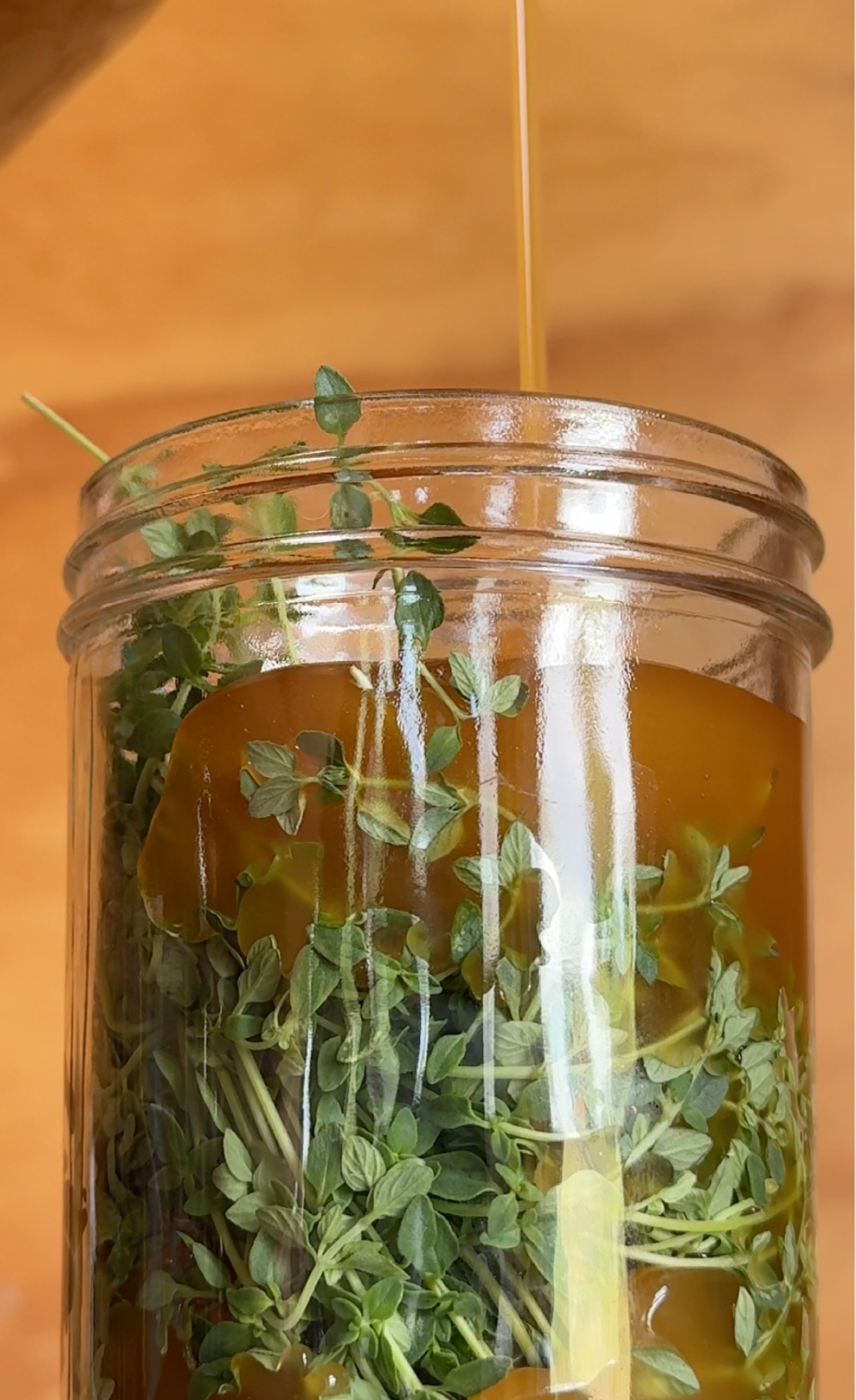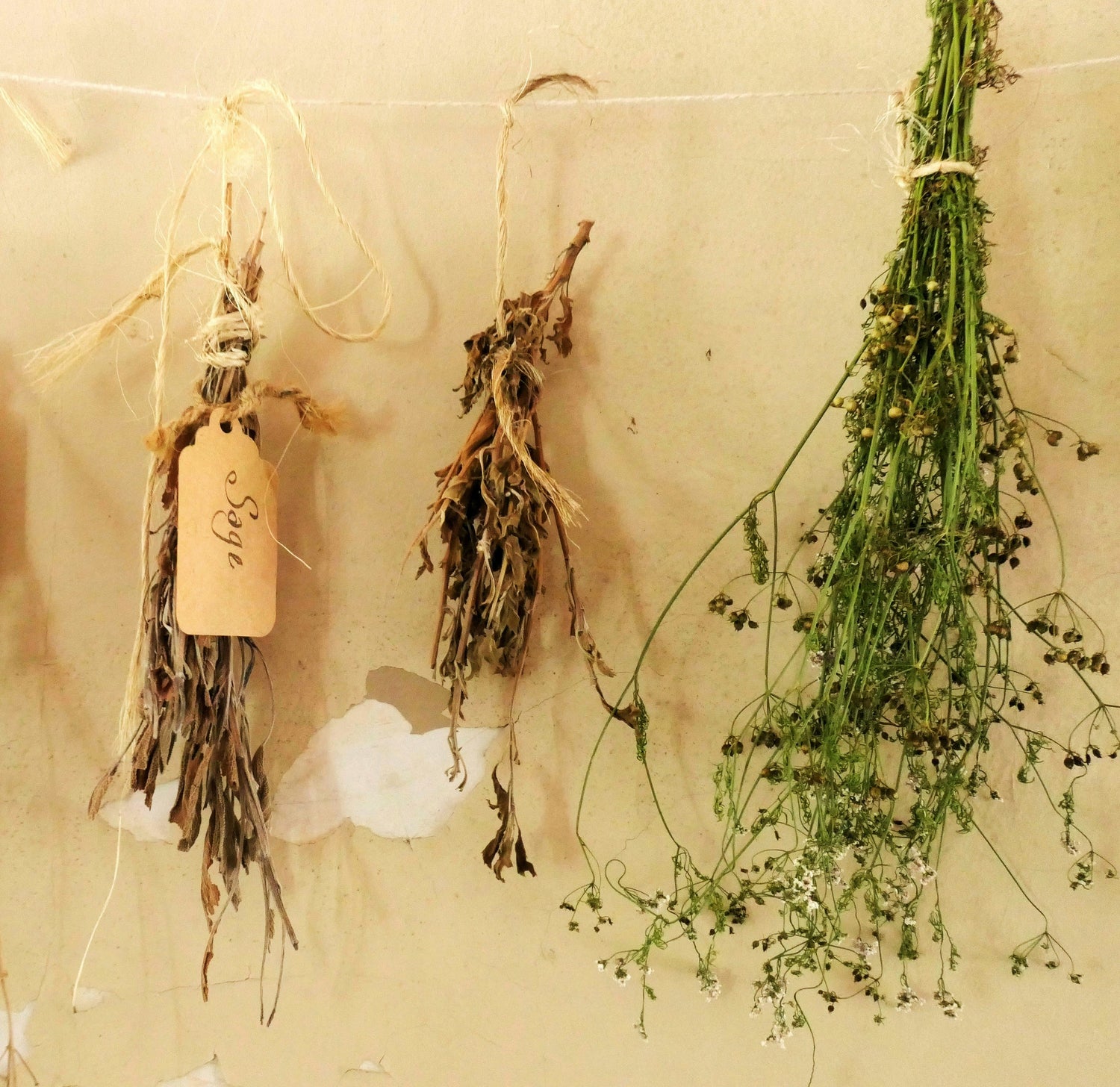Dogs are as unique as the people who love them, each with their own quirks, needs, and ways of moving through our world. And, just like us, they face health challenges that respond beautifully to gentle, herbal support.
From calming itchy skin to easing creaky joints or settling a nervous belly, plants have been showing up for our pups for centuries. In fact, wild animals have long been spotted self medicating with plants, an endlessly fascinating behavior called zoopharmacognosy. Picture a bear chewing on willow bark for pain relief, or a cat nibbling on grass to aid digestion. As herbalists, we take this as living proof that the healing language of plants is truly universal, instinctive, and still very much available to our domesticated dogs (even if they spend more time on the couch than in the wild).
Understanding Your Dog’s Constitution
In traditional herbalism, one of the first things we look at is a person’s constitution, which is basically how their body likes to operate. Is their system running hot or cold? Damp or dry? While we can’t necessarily sit our dogs down over a cup of tea and ask them about themselves, we can observe them carefully! Notice:
-
Does my dog seek warmth and snuggle under the blankets? Do they have a cold nose, ears, or paws? They may have a cold constitution and thrive with warming herbs (like ginger and turmeric).
-
Alternatively, do they pant often, sprawl out on cool tile floors, or love a good breeze? Is their skin warm to the touch or do they have red or irritated patches? Your dog will likely do better with cooling herbs (like cleavers and calendula).
Matching the energetics of an herb (warming, cooling, moistening, drying) to your dog’s unique constitution is one of the simplest (and most effective!) ways to make your herbal remedies work better.
Why Teas Are Your Dog’s Best Friend
When it comes to sharing herbs with your dog, water-based medicines are THE move. These herbal remedies (such as teas, infusions, and decoctions) are gentle on their sensitive digestive systems, easy to absorb, and simple for you to sneak into their day. When herbs are extracted in water, they release soothing and nourishing plant compounds like mucilage, minerals, and anti-inflammatory agents. And, unlike alcohol-based tinctures (which can be too harsh or concentrated for canine systems), a tea delivers minerals, vitamins, and active plant constituents in a form their bodies can immediately recognize and put to use. Plus, many dogs actually enjoy teas, making it way less stressful to provide them with medicinal support. It’s exactly the kind of slow, gentle medicine our dogs thrive on.
To work teas into your dog’s daily routine:
-
Make their tea weaker than you’d make your own, using 1 tsp of dried herb per cup of hot water. And always cool it down before giving it to them!
-
Add to their water bowl, starting small (with ¼ cup) to see how they like it
-
Pour a little over their meals
-
Make herbal tea ice cubes for hot days or teething puppies
-
Mix it up! Rotate herbs weekly so they get a diversity of plants, just like they would in the wild.
Common Canine Pain Points & Herbal Allies
Loose Stool & Diarrhea
-
Slippery elm: soothes the digestive tract and binds stool
-
Licorice root: heals and protects inflamed intestinal lining
-
Plantain leaf: promotes intestinal repair and tissue regeneration
-
Marshmallow root: provides mucilage to moisten and calm irritated GI tracts
-
Calendula: gently anti-inflammatory and encourages tissue healing
-
Aloe: rehydrates dry tissue and cools internal heat
Allergies
-
Nettle Leaf: acts as a natural antihistamine; calms allergic reactions
-
Eyebright: eases itchy or runny eyes
-
Burdock: enhances liver detox in clearing histamines and allergens
-
Calendula: soothes irritated mucous membranes
-
Turmeric: reduces systemic inflammation
Anxiety
-
Chamomile: gently calming for mild stress
-
Passionflower: relieves looping thoughts, restlessness, and fear
-
Valerian: deeper nervous system relaxant for separation anxiety or loud noises
-
Hemp oil: supports full body relaxation
Joint Pain
-
Turmeric: reduces inflammation and stiffness
-
Poria Mushroom: supports mobility and joint comfort
-
Nettle: rich in minerals and relieves swelling
-
Virginia Creeper: promotes a healthy range of motion, especially with mobility decline
-
Tremella Mushroom: supports tissue hydration and lubrication
-
Marshmallow Root: lubricates the joints with its mucilage
Bonus (non herbal) allies: PEA, glucosamine, chondroitin for joint cushioning and repair
Kidney Issues
-
Astragalus: a tonic herb for kidney function and immune health
-
Burdock: gently detoxifes
-
Couch Grass: helps flush the urinary tract as a mild diuretic
-
Goldenrod: stimulates urinary flow and soothes the kidneys
-
Marshmallow Root: coats and soothes urinary tract lining
-
Parsley: supports overall kidney health as a gentle diuretic
Weak Teeth & Smelly Breath
-
Shitake mushrooms: fight plaque build up and support gum health (plus, kidney support = healthier teeth)
Tips for Feeding & Supporting Your Dog
-
Boost kibble with fresh toppers like broccoli stems, raw egg, meat scraps (preferably raw if your dog can tolerate it), shredded carrots, and goats milk to boost nutrition and variety.
-
Switch up feeding times to encourage metabolic flexibility and improve enzyme health. Some dogs thrive on once daily feedings if using kibble.
-
Support lymph flow and detox with cleavers, ginger, yarrow, and burdock.
Build Your Herbal Toolkit
For a simple yet effective home apothecary for your dog that covers many of these ailments, consider stocking up on:
-
Nettle
-
Turmeric
-
Yarrow
-
Holy basil/tulsi
-
Calendula
-
Cleavers
-
Ginger
And if you want to go deeper, listen to Olivia’s full conversation with canine herbalist Rita Hogan on What’s the Juice podcast. For specific dosing, protocols, or advice for a particular dog, grab her book “The Herbal Dog” for detailed guidance on dozens of different conditions.



